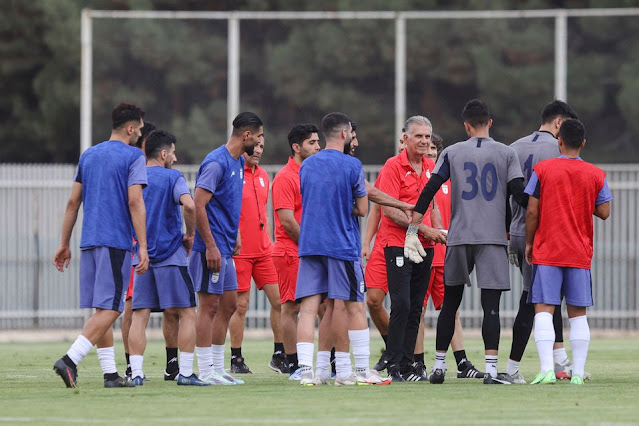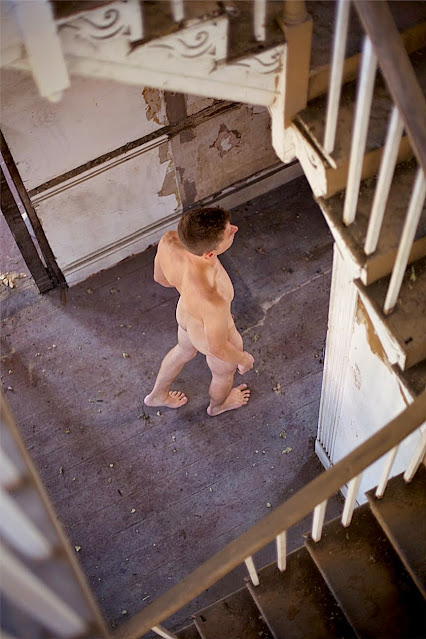DAY 173 | Iran's World Cup soccer team silent during national anthem, in defiance of mullahs' regime
Iranian World Cup squad declines to sing national anthem, backing protests at home
Iran’s national men’s soccer team refused to sing the country’s national anthem at the World Cup in Qatar on Monday, in an apparent act of defiance against their government, which has become the target of growing and incendiary protests.
The team stood in a line with arms around one another's shoulders, before their opening match against England, but instead of singing the words, as is traditional, the players looked stony-faced and stared straight ahead.
The moment was not shown on state TV in Iran.
Iran seeks to quell protests with death sentences, activists warn
Paris (AFP) – Iran, already one of the world's most prolific users of the death penalty, is planning to use capital punishment as a means to quell the protest movement by spreading a climate of fear in the population, activists warn.
The judiciary has already confirmed six death sentences over the protests, with Amnesty International saying that based on official reports at least 21 people currently on trial are charged with crimes that could see them hanged.
Iran currently executes more people annually than any nation other than China, according to rights groups.
Amnesty International says Iran put to death at least 314 people in 2021, while Norway-based Iran Human Rights (IHR) says the number of executions this year is already much higher at 482.
Campaigners warn that not only do the authorities plan to execute protesters on vague charges linked to alleged rioting or attacks on security forces during the demonstrations, but also step up hangings not related to the protest movement, notably of prisoners convicted on drug-related charges.
Amnesty said the authorities' pursuit of the death penalty is "designed to intimidate those participating in the popular uprising... and deter others from joining the movement".
The strategy aims to "instill fear among the public", it added, condemning a "chilling escalation in the use of the death penalty as a tool of political repression and the systematic violation of fair trial rights in Iran".
'Strong signal'
The Iranian judiciary has conspicuously not named the six convicts already sentenced to death in a possible bid to prevent their names becoming rallying causes or hashtags on social media.
They have all been convicted either of "enmity against God" ("moharebeh") or "corruption on earth" ("efsad-e fel arz"), sharia-related charges that are capital crimes in Iran and which rights activists have long feared are used against opponents of the regime.
Amnesty has nonetheless said the nature of the charges makes it possible to deduce the names of those sentenced so far.
They include Mohammad Ghobadlou, a young man whose mother has been seen on social media making an impassioned plea for her son's life.
Among the 21 facing the death penalty is one woman, named by Amnesty as Farzaneh Ghare-Hasanlou, as well as her husband Hamid, a medical doctor.
Another risking capital punishment is Saman Seydi, also known as Saman Yasin, a Tehran-based rapper from Iran's Kurdish minority who has backed the protests on social media and is accused of firing into the air and harming national security.
Rights groups are calling for concerted action from the international community to stop the executions, especially with the UN Human Rights Council set to hold a rare special session on Iran on Thursday.
Campaigners had already noticed a troubling uptick in capital punishment this year even before the protest movement got underway, with Iran again executing large numbers on drug-related charges despite recent moves to limit such executions.
Rights groups also complain that disproportionately large numbers from Iran's ethnic minorities are executed, including Kurds but especially Baluch from the country's impoverished southeast.
"Unless the international community sends a very, very strong signal to the Islamic republic authorities, we will be facing mass executions," the director of IHR Mahmood Amiry-Moghaddam told the World Congress against the Death Penalty in Berlin.
He pointed to "not just political executions, but the ones that cost the least politically, particularly drug-related charges".
'Barrier of fear'
The protests sparked by the death of Mahsa Amini, who had been arrested by morality police in Tehran, have turned into the biggest challenge for the authorities since the 1979 Islamic revolution.
Authorities in Iran describe the protests as "riots" with judiciary chief Gholamhossein Mohseni Ejei saying those on trial are "affiliated with counter-revolutionary elements" and will be "punished according to the law".
Earlier this month, 227 out of Iran's 290 MPs voted for a motion urging the use of the death penalty in relation to the protests, calling on the judiciary to apply "an eye for an eye" retributive justice.
The past year had already seen Iranians in and outside the country mobilising against the use of the death penalty, with the Persian hashtag #edam_nakon (#dont_execute) becoming a viral trend.
Among those currently languishing in jail in Iran is film director Mohammad Rasoulof, who was arrested even before the protests began and whose anti-death penalty film "There is No Evil" won the top prize at the 2020 Berlin film festival.
"The Islamic republic has used the death penalty to uphold the barrier of fear for 43 years," said Amiry-Moghaddam.
"The current protests have seen the collapse of that barrier which the Iranian authorities are now attempting to rebuild with the current repression and death sentences," he added.
Top Iranian Cleric Reiterates Call For Executing Protesters
Iran's clerical regime signaled in Friday sermons that it will not compromise in meting out tough punishment to protesters, calling them rioters and enemies.
The message was delivered by Tehran’s Friday Prayer Imam and firebrand cleric Ahmad Khatami, who said according to religious principles, any attempt to weaken the regime is “haram” or forbidden and “we should deal with rioters using the toughest punishments.”
Friday prayer imams routinely send messages on top priorities and policies of the regime's hardliner core, controlled by the office of Iran's ruler Ali Khamenei.
Khatami categorized protesters into “murderers”, people “opposing God” and those who “spread lies and agitate public opinion”, saying that all are subject to death penalty.
Earlier this month, 227 hardliner members of Iran’s parliament sent a letter to the Judiciary asking for the death penalty for some protesters. The Judiciary, controlled by Supreme Leader Ali Khamenei has already sentenced several detainees to hanging.
But before detaining people, security forces resort to extreme violence on the streets, using any weapon they have without regard to age, gender or risk involved. Those who have military weapons shoot to kill.
Estimates by human rights monitoring organizations have put the death toll of protesters killed by a variety of regime forces at a minimum of 350 since mid-September. Estimates also say that around 15,000 have been arrested.
Officials, following the initial signal by Khamenei, have dubbed the 2-month-old protests “riots” and the protesters “rioters”. Some of those arrested have been charged with “moharebeh” or fighting God, which is the most serious offense in Iran’s Islamic law and can trigger the death penalty. Many others among thousands of detainees will probably face the same accusation.
Khatami tried to balance his tough words by saying that “protests are not forbidden in Islam,” and the regime was only reacting to “rioters”, but the fact remains that security forces used force against the first small gatherings on September 16 when news broke that the 22-year-old Mahsa Amini had died in hospital after being beaten on the head by ‘morality police’.
According to the constitution, unarmed citizens are allowed to protest, and the interior ministry is supposed to receive applications and issue permits for assembly. But except government rallies, no group has ever received a permit for a protest.
Khatami blamed the government’s use of force on “rioters burning ambulances,” while hundreds of videos published in two months shows security forces attacking all gatherings everywhere, independent of what protesters might have done or not.
The hardliner cleric in his sermon also revealed the true thinking of the ruling circles, saying that the protesters’ aim is “overthrowing the regime” and this will not be tolerated. He also admitted that protests are weakening the foundations of the governing system.
Khatami also mentioned Iran’s dismemberment, a danger the government loves to speak about since protests broke out, to scare the average citizen from the consequences of the antigovernment movement. He claimed that Western countries plotting against Iran will be disappointed to see unity prevailing.
However, there has been little evidence of any separatist influence among protesters, who all emphasize ethnic solidarity between different regions of the vast country.
In fact, Mahsa Amini was a Kurd from a Kurdish city, but people in other parts of the country immediately came out to protest her killing in police custody.
Sources: NBC, Agence France-Presse, Reuters, iranintl.com, November 19-20-21, 2022













The clerics in Iran apparently believe their god is itself incapable of punishing the protesters, so they have to do it. The clerics thereby commit blasphemy. Their punishment for blasphemy is...
ReplyDelete... the same as for apostasy or having consensual gay sex. 👍
Delete